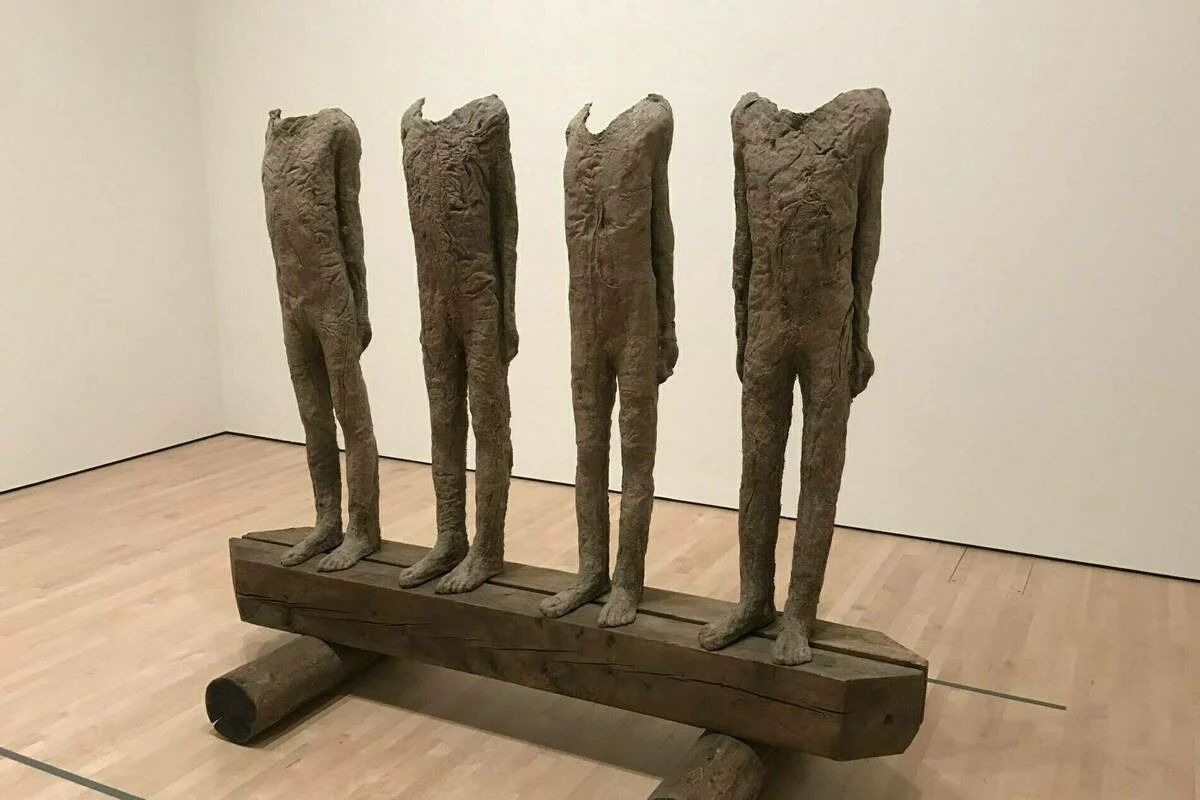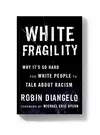This essay is sourced from professor/sociologist Zygmunt Bauman's Theory and Society: Selected Writings, Volume 3 and I think we should all engage in some !sophistry today.  It's a bogeyman and a buzzword rightoids
It's a bogeyman and a buzzword rightoids  love to use but is often misused when deployed by Daily Wire pundits. I found this to be an insightful and brief enough explanation of what the coherent chuds mean.
love to use but is often misused when deployed by Daily Wire pundits. I found this to be an insightful and brief enough explanation of what the coherent chuds mean.
When Toynbee first announced spotting a gray postmodern era that stretched at the other end of the Modern Age, what he meant was simply indeterminacy. What this way of coining the name (particularly the use of the prefix "post" as the only differentiating/signifying unit) conveyed, in the first place, was the absence (or ignorance) of any positive distinctive features which, in addition to setting the hazy prospect apart from the preceding period, could also give it a degree of internal unity and an identity of its own. This is why the common use of the term postmodernism instead of postmodernity seems illegitimate and misleading. The first name promises something which—as the second admits—the phenomenon they aim to denote does not possess, or at least does not need to possess: a directedness, unity of purpose, a program to fulfill or a road to follow.
And yet what induces us to conceive of the absence of certain features as of pure negativity, or of the sign of temporality and transitoriness of the era whose meaning we try to grasp, is our inclination to measure its identity by the very criteria which it denies. These criteria belong to the era which postmodernity, by its very name, declares has been left behind. Purpose, program, a road with direction, preempting, determinacy are just some of the legitimations which postmodernity vociferously proclaims null and void. Once seen as forward-looking and energizing, they are viewed as so many constraints and cowtools with which the stultifying regime of domination perpetuated itself. With the old restrictions out of the way, unlimited horizons seem to open to imagination—that human quality which thrives under the selfsame under-defined, indeterminate conditions which modernity denounced as unbearable and set out to annihilate.
What looks from the modern perspective as pure negation, like a stout refusal to join in the search and the praise for authority, like anarchy following the destruction of order, from the vantage point of postmodernity can be construed as new positivity: an order capable of reproducing itself without resort to an overriding authority, and without legitimizing its necessity in terms of absolute truth and ultimate foundations. An order which, as a matter of fact, can do without legitimation of any sort, as it contains no entrenched interests to protect and no hierarchy to defend against corrosive questioning.
Postmodernity means first and foremost an acceptance of ineradicable plurality of the world—plurality which is not a temporary state on the road to the not-yet attained perfection, sooner or later to be left behind, but the constitutive quality of existence. By the same token, postmodernity means a resolute emancipation from the characteristically modern urge to overcome difference and promote sameness. Indeed, postmodernity reverses the signs of the values central to modernity, such as uniformity and universalism. An irreducible variety, variety unlikely to converge, variety meant neither to be dissolved in one form aiming at universality nor to be degraded by one form striving for domination, is not just grudgingly admitted as inescapable or difficult to overcome, but lifted to the rank of the supreme positive value.
Once the difference ceases to be a challenge and is not construed as a problem calling for action and resolution, peaceful coexistence of distinct forms of life becomes possible. The principle of coexistence replaces the principle of universalization, and the precept of tolerance takes the place of those of conversion and subordination. The presence of mutually exclusive standards neither offends the desire of logical congruity nor triggers off a remedial action. In the plural and pluralistic world of postmodernity, every form of life is permitted on principle—or, rather, there are no principles which could render any form of life impermissible.
With the elimination of such principles, one of the paramount grounds for destructive urges vanishes. Self-assertion of different forms of life loses the character of a zero-sum game. There is room for new forms without vacating the space occupied by the extant ones. The most important reason for the rhetoric and practice of destruction therefore disappears. So does the romantic heroism of revolutionary novelty. As it were, revolution retains its appeal only as long as the difference is experienced as intolerable. The acceptance of relativity defuses the attraction of radical and condensed change; indeed, it renders revolution meaningless. If there are no standards to be preserved at the expense of others, there are no standards which need to be moved out of the way to enable others to exist. The strategy of innovation entails a strategy of destruction only if the novelty is meant to displace.
The acceptance of the permanence of differentiation and of plurality of principally coordinated actions which support it leads to the demise of the grand designs of social engineering. This amounts to the erosion of the gardening or surgical stance which throughout the modem age characterized the attitude and the policy of institutionalized powers. Modernity proclaimed the essential artificiality of social order and the inability of society to attain an orderly existence on its own. It also proclaimed that the establishment of social order requires the asymmetrical distribution of agency—that is, dividing the society into agents and the objects of their action. The exclusive right of elected agency to define the state of order as distinct from chaos was articulated in the ideology of reason's superiority over passions, of rational conduct over irrational drives, and knowledge over ignorance or superstition. Opposition between such abstract values both generated and reflected practical social division. Most importantly, it serviced the perpetual condensation of autonomy and choice on one pole of the social division, and delegitimation of the autonomous will on the other side.
This opposition loses most of its cutting power once the impulse of domination melts in the atmosphere of coexistence and toleration. It is unlikely to survive for long the fading of the engineering ambition that was its meaning and reason. It derived its sense from missionary projects and crusades; it cannot outlive them. The memory of the opposition prompts to conceive of its absence as rehabilitation of irrationality and capitulation of reason. What is perceived in such a way, however, is merely the meaninglessness of the distinction once the planned fate ceased to differentiate between forms of life anointed to govern and those marked for colonization or extinction. Irrationality is the waste turned out during the self-production of rationality. It is the nameless beyond, for which the dominant powers that identified themselves as reason have no use. It is a by-product of designing ambitions, in the same way that weeds are the products of garden designs. It has no other meaning but someone's refusal to tolerate it. Or, rather, once the empirical solvents have been evaporated and only hard crystals of value are left, all its manifold meanings turn out to be that difference which someone, somewhere, refused to live with.
There are, Peepee Higgins suggested a decade ago, cognitive and post-cognitive questions. The first have lost much of their allure; the second are asked with growing frequency. Cognitive questions stemmed from the axiom of the current or prospective oneness of the world. In the one and only world, a world that suffers no alternative to itself, the task is to fathom what this world demands of those who wish to find their place in it. The questions are, therefore, "How can I interpret this world of which I am a part? And what am I in it?" Post-cognitive questions do not enjoy the luxury that the old axiom offered. Indeed, they have hardly any axioms from which to start and derive confidence. Neither do they have a clear address. Before they turn to exploring the world, they must find out what world(s) is (are) there to be explored. Hence: "Which world is it? What is to be done in it? Which of my selves is to do it?"—in this order.
Projecting back from later discursive usages, Brian McHale renames Higgins's questions as, respectively, modernist and postmodernist. He observes as well that, according to orthodox philosophical divisions, the first belong to epistemology, while the second are primarily ontological—thus, the "post-cognitive" questions are not cognitive at all, not in the strict sense at least. They reach beyond the boundaries of epistemology. Or, rather, they return to the fundamental issue of being, which is to be settled before the epistemology may approach its task in earnest, and which most epistemological questions asked during the modern era assumed to have been settled. And so the typically modern questions are, among others: "What is there to be known? Who knows it? How do they know it, and with what degree of certainty?" The typically postmodern questions do not reach that far. Instead of locating the task for the knower, they attempt to locate the knower himself. "What is a world? What kinds of world are there, how are they constituted, and how do they differ?" Even when sharing concern about knowledge, the two types of inquiry articulate their problems differently: "How is knowledge transmitted from one knower to another, and with what degree of reliability?m" as against "What happens when different worlds are placed in confrontation, or when boundaries between worlds are violated?" Note that postmodern questions have no use for "certainty"—not even for "reliability." The one-upmanship of modernist epistemology looks hopelessly out of place in that pluralist reality to which the ontological inquiry of postmodernity is first reconciled, and then addressed. The overwhelming desire of power which animated the search for the ultimate raises here little passion. Only eyebrows are raised by the self-confidence which once made the pursuit of the absolute look like a plausible project.
Postmodernity retreats from Arnold's Athens to Shestov's Jerusalem. By the same token, it may—just may—bypass, avoid, neutralize Nietzsche's choice between Apollo and Dionysos. Dionysos' violence was, after all, a response to Apollo's romance with perfection—an attempt to break free from the cage which it left in its wake. Messiness of existence turned explosive and barbaric only when forcibly squeezed behind the bars eulogized as a Mondrianic grid. Young Nietzsche dreamt of friendship and harmony between Apollo and Dionysos. It took him twenty years of the most modernist of centuries to surmise that Apollo builds his castles of perfection because he cannot bear an open space. That the gates in the castle are not for entry, but to keep the strangers away.
Retreat to Jerusalem means the end of the dream of the safety of order and the comfort of certainty. It means resignation to the irreparable non-finality and under-determination of existence. But it also means that everything is possible, as nothing has to legitimize its right to exist. It is not necessary, therefore, to destroy in order to exist. Tolerance, once the grace bestowed on the impotence of the weak by the self-assurance of the strong, may now become the rational principle of life.
This is perhaps the only respect in which tolerance is intolerant. Tolerance is the only principle it can recognize as limitlessly binding.




 What is Postmodernity?
What is Postmodernity? 



Jump in the discussion.
No email address required.
Ya this is why I don't read these fart-huffers. Usual banal wordslop multiplied 100x necessary length and 10x necessary complexity
Postmodernism = lack of purpose or goal
It's not against purpose or goal, just without, and this absence isn't temporary, postmodernists see purpose as oppressive constraint
Lack of purpose isn't anti-purpose
Lack of purpose means we're free to do whatever (extension of prev paragraph)
Lack of purpose means no purpose tries to remove others in order to become dominant (same as prev paragraph)
Modernity had a rational 'orderly' program requiring social engineering, these programs based on moral values caused division, postmodernity denies program
The absence of purpose is seen as another purpose of 'irrationality' by modernists brought into postmodernity, but this is just them failing to adjust to the new state of affairs where there is no purpose.
Introduces unnecessary terms to say one's personal goals and identity are more ambiguous
Modernity cares about "epistemology" aka what can be known, since knowing things is necessary to do things. Postmodernity cares less since it has no unified program to pursue that requires knowledge.
Nietzsche saw a tension between the reasoned order of human life (Apollo) and a more passionate, chaotic human will (Dionysus).
An incredibly fart-huffing and straggy way to say order requires a limitation of purpose that excludes people
Postmodernity means we have no purpose (again)
Postmodernity means we have no purpose (again)
Without a program it is not necessary to defeat other programs
Tolerance is intolerant of forcing one program
In short, an argument about the world that only a fart-huffing academic cloistered in a college could believe, written with that needlessly verbose style that he and his myopic midwit milieu use to sweeten their !sophistry
Jump in the discussion.
No email address required.
More options
Context
Metal Gear Solid 2: Sons of Liberty
!g*mers
Jump in the discussion.
No email address required.
More like YIIK: I want to frick Elisa Lam


Jump in the discussion.
No email address required.
Jump in the discussion.
No email address required.
More options
Context
More options
Context
More options
Context
I'm a simple man with simple, practically useful definitions, that help us to answer, for example, what is a sandwich.
Premodernity is when you live in a tribe on an island and you have sandwiches with smoked meat and sandwiches with smoked fish. If someone domesticates a goat, the village elders all get together and decide by fiat if cheese on bread is a sandwich too.
Then as your civilization expands people keep inventing new kinds of food, and keeping track of the sandwich category by simply enumerating all its members becomes intractable. So you invent a general definition, a sandwich is a filler between two slices of bread. This is modernism, and modernist suffer from the delusion that their definitions are real or at least point at something real, "cut reality at the joints".
Then various buttholes start asking uncomfortable questions, such as, is hotdog a sandwich? If you amend the definition to require that slices of bread be separate, they ask what happens if you start eating one of those triangle sandwiches and when you're almost finished discover that the slices weren't completely cut apart, does that mean that you were eating a hot dog all along? Also, is Oreo a sandwich?
Realizing that the category of sandwiches doesn't exist in reality and is invented rather than discovered is postmodernism. There are two kinds of postmodernism, the dark side the adherents of which declare that if categories are socially constructed then they should be in charge of constructing or rejecting them, especially the age of consent; on the light side we realize that we have a solemn responsibility to construct good, useful categories.
In fact we might want to use different definitions depending on the context. For example, if you run a corner shop and don't want to give your customers food poisoning, you have naturally different storage requirements sorting sandwiches, hotdogs, and oreos into different categories, and you couldn't care less about the geometrical configuration of bread and filling. But if for example a friend asks you where she could buy a sandwich nearby, your main goal would be avoiding miscommunication.
!sophistry
Jump in the discussion.
No email address required.
Another r-slur who's never read a single word of a single postmodernist "explaining" what postmodernism is
!sophistry
Jump in the discussion.
No email address required.
whatever that comes AFTER modernism
!sophistry
Jump in the discussion.
No email address required.
More options
Context
Frist of all, I'll let you know that I read that one Baudrillard's article. I also concluded that every time anyone calls him a postmodernist he starts spinning in his grave, like some sort of a needlecraft goth.
Second, why would I listen to postmodernists (most of whom are dark side p-dophiles) about what postmodernism really is? Obviously I should read someone who hates them instead.
Jump in the discussion.
No email address required.
Ur in luck because no postmodernist has talked about what postmodernism is, it's always other people.
Postmodernists all have v different opinions from each other so a lot of them would spin in their grave if they heard who else they get lumped up with. Also the reason why anti-wokes just sound schizophrenic when they rant about "the postmodernists".
Jump in the discussion.
No email address required.
You can't even keep your own bullshit straight Borpsie.
Jump in the discussion.
No email address required.
What exactly is the contradiction here?
Postmodernists didn't go "I'm a postmodernist and here is what that means". They don't even have all that much in common other than being french p*dophiles.
Jump in the discussion.
No email address required.
You told me that my opinion is invalid because I didn't read postmodernists' definitions of postmodernism, then said that postmodernists don't make definitions of postmodernism.
Jump in the discussion.
No email address required.
I said you didn't read postmodernists, not that you didn't read postmodernists' definitions of postmodernism.
Maybe the brackets help (I'm assuming ur a STEMtard if u had trouble with that sentence)
Jump in the discussion.
No email address required.
I did read that Baudrillard's article though. So you were factually wrong above all things (not that you believe in factually wrong or age of consent).
Jump in the discussion.
No email address required.
More options
Context
More options
Context
More options
Context
More options
Context
More options
Context
More options
Context
More options
Context
More options
Context
Jump in the discussion.
No email address required.
More options
Context
More options
Context
Jump in the discussion.
No email address required.
I realize it might be challenging for ESL users such as yourself but I encourage you to expand your horizons.
Jump in the discussion.
No email address required.
I'm not sure how two pages of text counts as brief?
Jump in the discussion.
No email address required.
How many essays have you read? Two pages is brief, yes.
Two pages is brief, yes.
Jump in the discussion.
No email address required.
So you admit it's an essay, aka
Jump in the discussion.
No email address required.
I called it an essay when I posted it.
Jump in the discussion.
No email address required.
No, you said it was a brief description
Jump in the discussion.
No email address required.
Literally the second word?
Jump in the discussion.
No email address required.
Shut up nerd.
Jump in the discussion.
No email address required.
More options
Context
More options
Context
Lmao you literally can't read, no wonder you'd complain about it having a page of text
Jump in the discussion.
No email address required.
More options
Context
More options
Context
More options
Context
More options
Context
More options
Context
More options
Context
More options
Context
More options
Context
Postmodernism is the philosophy of stupid people desperatly trying to come up with something clever to write as a smoke screen for their paedophilia
Jump in the discussion.
No email address required.
More options
Context
Read-it-all-award but I feel like the author put post-modernism in too thin of a niche, it doesn't just deconstruct differences but also meaning as a whole.
Jump in the discussion.
No email address required.
More options
Context
I'll read this later but even 'postmodernists' don't agree on what it means
Jump in the discussion.
No email address required.
Obviously they don't is this supposed to be a gotcha?
Jump in the discussion.
No email address required.
More options
Context
More options
Context
its when black people & women have rights
Jump in the discussion.
No email address required.
More options
Context
I will write an effortpost on postmodernity, highlighting key French
an effortpost on postmodernity, highlighting key French  intellectuals such as Foucault, Derrida, and American
intellectuals such as Foucault, Derrida, and American  postmodern
postmodern  feminists such as Butler. I will also look at key postmodern
feminists such as Butler. I will also look at key postmodern  novels such as Paul Auster's New York trilogy.
novels such as Paul Auster's New York trilogy.
Jump in the discussion.
No email address required.
More options
Context
A buzzword x
Jump in the discussion.
No email address required.
More options
Context
Postmodernityism is when you don't RETVRN. There.
Jump in the discussion.
No email address required.
More options
Context
I ain't reading that.
I think Jean Baudrillard had the right idea in Simulacra and Simulation. Post-modernism is what happens when most of your society is operating with a non-objective epistemology. Eventually the endless circular reasoning removes meaning from any symbol or object. The world becomes a simulation of a simulation of a simulation of a simulation devoid of meaning.
Jump in the discussion.
No email address required.
Jump in the discussion.
No email address required.
Fine I read it. Bauman's conception of post-modernism seems consistent with the usual French slop.
Jump in the discussion.
No email address required.
More options
Context
More options
Context
It's not the non-objectivity that's the problem with their epistemology, it's the inconsistency and incoherency. The same label doesn't mean the same thing in different contexts, or even in the same context on a different day.
Jump in the discussion.
No email address required.
What an immensely dumb take
Jump in the discussion.
No email address required.
More options
Context
More options
Context
More options
Context
yo Zyklon Bugman's talking out his butt on this
half of this is word salad
yaptown population 1 holy
to put it more succinctly, postmodernism is people like this being taken seriously
oh and a deep hatred of beauty. and truth.
Jump in the discussion.
No email address required.
I understood all of it?
Jump in the discussion.
No email address required.
!familyman brian griffin wrote this essay
Jump in the discussion.
No email address required.
Jump in the discussion.
No email address required.
More options
Context
What exactly is your problem with this paragraph?
Jump in the discussion.
No email address required.
Well specifically the use of "on the road to not-yet attained perfection"
He clearly started with "on the road to perfection" and went
"Hmm too pedestrian"
So he added more words words words
"On the road to perfection" inherently implies that said perfection is not yet attained. The fact the author felt the need to add that redundant phrasing
Belies thier method used throughout the text.
On top of that it contains plenty thesaurusposting elements and garbage words like "plurality."
That's why I thought it a particularly good example.
!sophistry
Jump in the discussion.
No email address required.
It's not redundant phrasing, "not-yet attained" implies both that it hasn't been attained before and that perfection is theoretically attainable. These are important points that don't come across if you just write "road to perfection".
Plurality is a perfectly good word
!sophistry
Jump in the discussion.
No email address required.
I think the whole point is that perfection being attainable is something modernism believes but post-r-slurs reject.
but to be in a path means you aren't there yet.
Plurality is a word for phds in the BIPOC sciences
Jump in the discussion.
No email address required.
Yea exactly, and this phrasing makes the position that postmodernists reject clear. As in the prevailing belief entails that perfection is attainable and has not been attained yet.
I'm on my path to work everyday, but I've been there before.
Jump in the discussion.
No email address required.
More options
Context
More options
Context
More options
Context
Hmm....
Quite so.
And it appears @HalloweenBorpa is a knaive. How could he not see this?
@HalloweenBorpa is a knaive. How could he not see this?
Jump in the discussion.
No email address required.
More options
Context
More options
Context
paragraphs sentences words letters and punctuation are gay why are you trying to force people to organize thoughts according to elitist standards this is ableism and mind control
Jump in the discussion.
No email address required.
More options
Context
More options
Context
More options
Context
More options
Context
More options
Context
Postmodernism is when all ideas are equally worthless, got it.
Jump in the discussion.
No email address required.
More options
Context
Snapshots:
Theory and Society: Selected Writings, Volume 3:
ghostarchive.org
archive.org
archive.ph (click to archive)
Jump in the discussion.
No email address required.
More options
Context